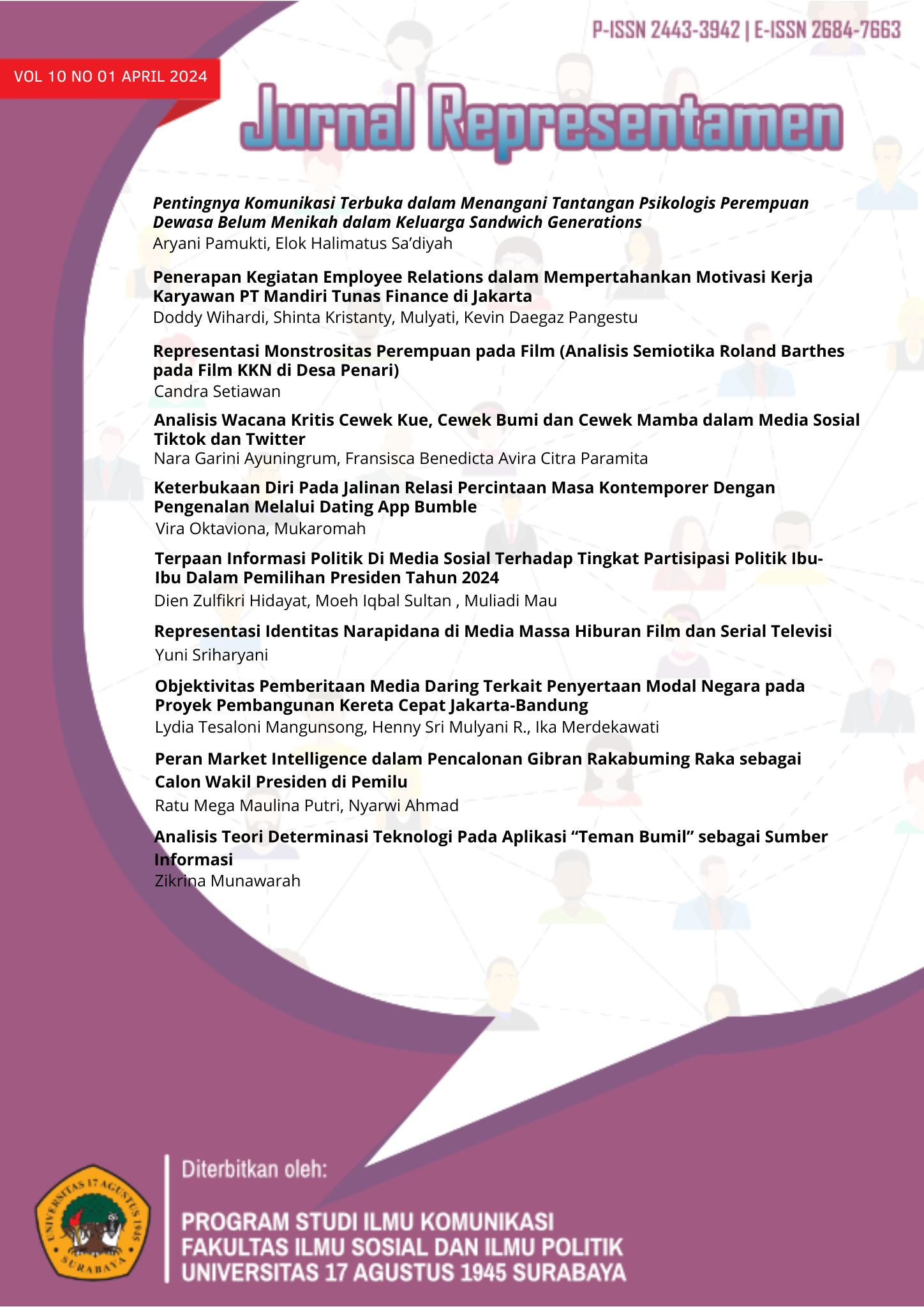Analisis Wacana Kritis Cewek Kue, Cewek Bumi dan Cewek Mamba dalam Media Sosial Tiktok dan Twitter
DOI:
https://doi.org/10.30996/representamen.v10i01.10760Abstract
The terms Cewek Kue, Cewek Bumi and Cewek Mamba are currently massively heard on social media
Tiktok and Twitter. This term was popularized by Tiktok users @javamassie and refers to the dominance
of colors used by women on the outfits worn. This term was originally only used among Tiktok users, but
after reaching 3 million viewers on the videos he uploaded on Tiktok, this term then spread on another
social media, namely Twitter. The users of the Tiktok and Twitter accounts then began to identify
themselves as Cewek Kue, Cewek Bumi or Cewek Mamba by using similar captions "so it turns out that so
far w is a wkwk earth girl" based on the outfits they use. This becomes interesting when this identification
is pinned by the owner of the @javamassie account who is a man, to female Tiktok and Twitter users for
using the word "cewek". The use of language cannot be judged as it is, nor can the use of the terms cewek
kue, cewek bumi and cewek mamba. This study uses Norman Fairclough's critical discourse analysis to
see how the term influences gender discourse in social practice. The result of this research is that social
media no longer builds its own reality, no longer forms its own virtual world, but at that time the virtual
world and reality are intertwined with each other. The discourse present in social media can no longer be
underestimated, what happens in social media, no longer stays in social media. Discourse that is present
and moves in social media also influences discourse in reality life. Social media is no longer a safe place
and an intact public space, when the practice of power persists.
Keywords: Tiktok; Twitter; Critical Discourse Analysis; Gender; Norman Fairclough
Downloads
Downloads
Published
Issue
Section
License
Authors whose manuscript is published will approve the following provisions:
The right to publication of all journal material published on the jurnal representamen website is held by the editorial board with the author's knowledge (moral rights remain the property of the author).
The formal legal provisions for access to digital articles of this electronic journal are subject to the terms of the Creative Commons Attribution-ShareAlike (CC BY-SA) license, which means Jurnal Representamen reserves the right to store, modify the format, administer in database, maintain and publish articles without requesting permission from the Author as long as it keeps the Author's name as the owner of Copyright.
Printed and electronic published manuscripts are open access for educational, research and library purposes. In addition to these objectives, the editorial board shall not be liable for violations of copyright law.











